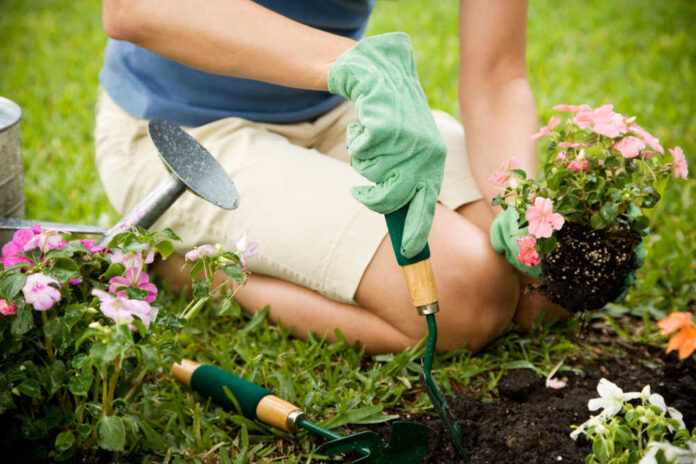
Gardening is a great way to get some fresh air, gentle exercise, and spend time surrounded by the wonders of nature.
And, of course, it provides you with healthy fruits and vegetables that are fresher and tastier than anything you could buy at the store.
But what you might not realize is that your gardening tools could be exposing you to some harmful toxins.
Since many people get into gardening to eat and live a healthier lifestyle, it’s crucial to be aware of the materials and tools you’re using and how they might affect your health.
PVC Garden Hoses
Polyvinyl chloride (PVC) is a type of plastic used for various purposes, such as packaging, construction, and furniture.
PVC is also a common material used to make garden hoses.
While PVC hoses are strong and durable, they may also leach harmful chemicals into the water you use to water your plants.
A study that tested 32 different hoses found at popular retail stores found elevated levels of lead, bromine, antimony, and phthalates in the PVC varieties but not in the non-PVC types. These chemicals can potentially cause a variety of health problems, including developmental issues, reproductive issues, and cancer.
The hoses labeled safe for drinking showed less leaching of these harmful chemicals, but you may still want to avoid drinking water sitting in a PVC hose in the hot sun.
Instead, opt for a non-PVC hose made from materials like rubber or polyurethane.
Brass Faucets and Fixtures
Another potential source of toxins in your garden is the brass faucets and fixtures that are often used to deliver water to your plants.
Brass can cause lead to leach into the water, into your soil, absorbed by your vegetables, and then ingested by you when you eat them.
Lead exposure can cause serious health problems, including developmental issues, learning disabilities, and behavior problems.
Replace any brass faucets and hose fixtures in your garden with lead-free alternatives made from materials like stainless steel, chrome, or copper.
High-Nitrate Fertilizers
To help the plants grow big and strong, some gardeners and farmers feed their plants fertilizers high in nitrogen.
While this might give your plants a boost, this high concentration of nitrates can runoff into nearby drinking water sources, potentially causing health problems for people and animals.
Children and infants are particularly vulnerable to the toxic effects of nitrates.
Instead of buying commercial fertilizers, consider making your compost and using that to nourish your plants.






















